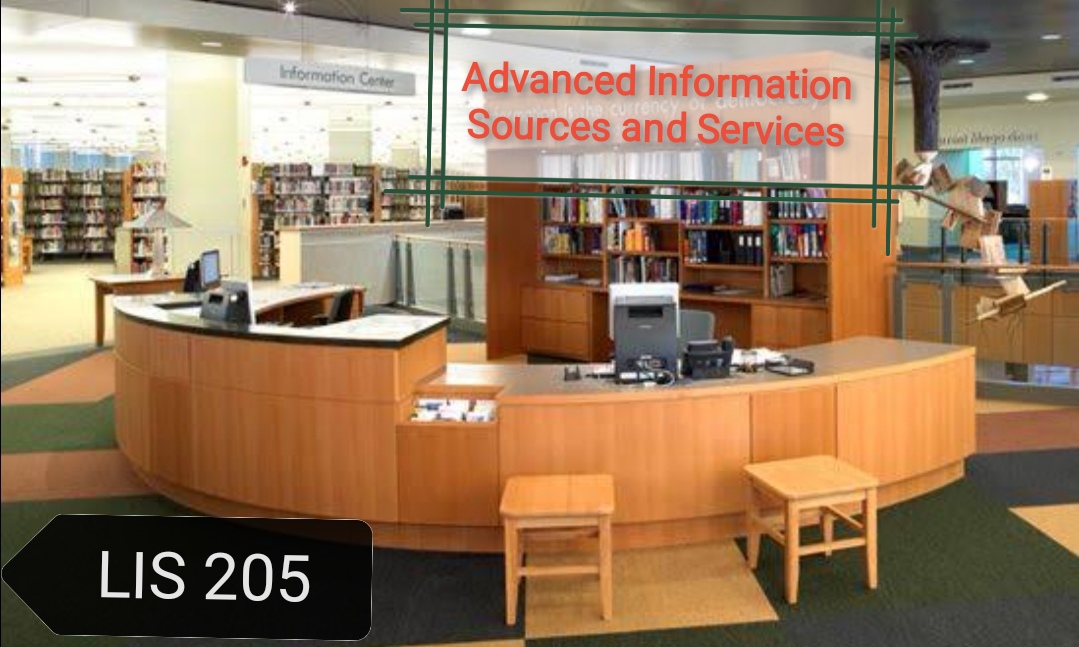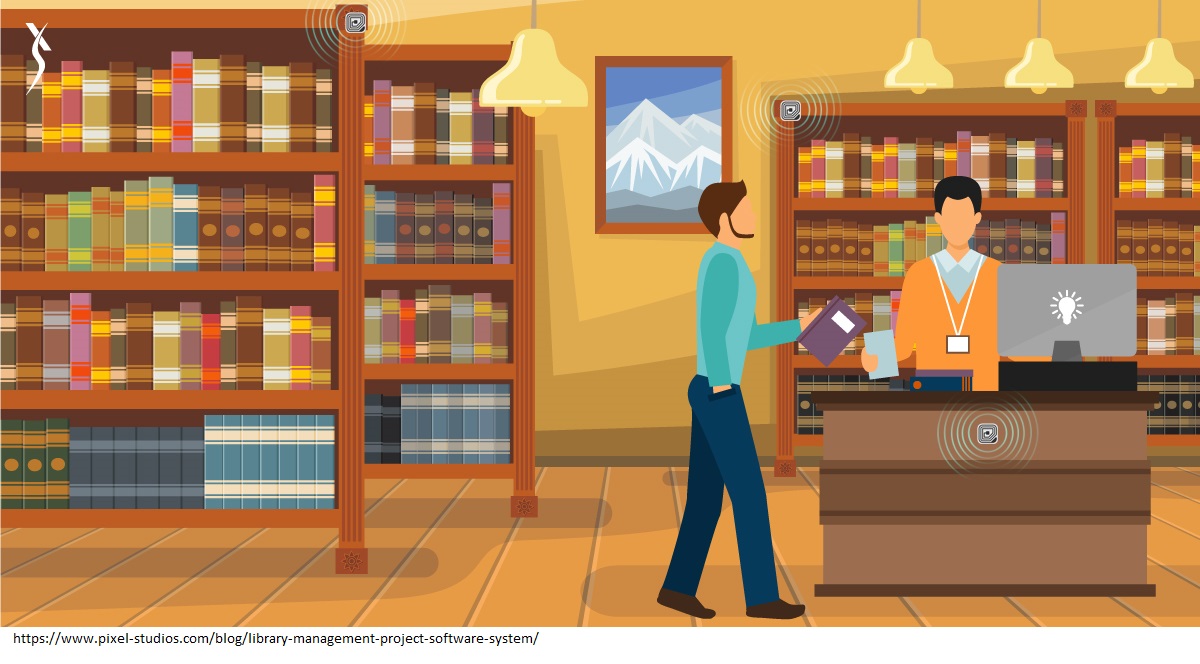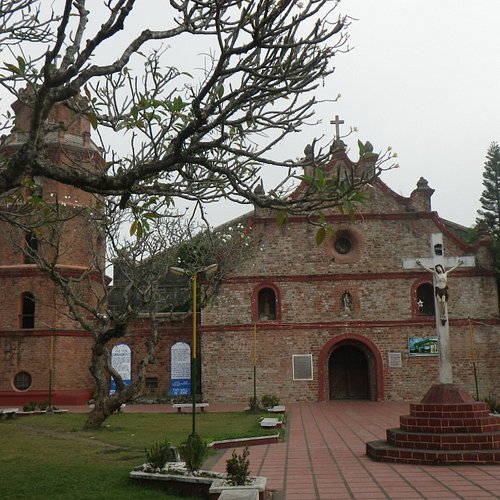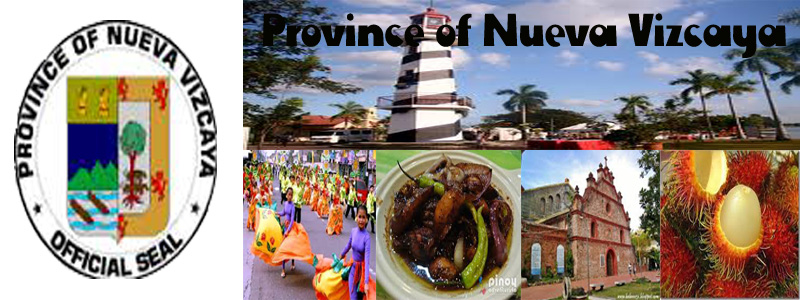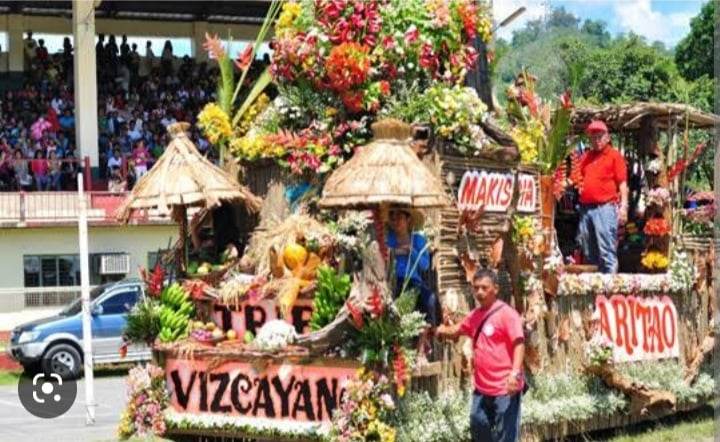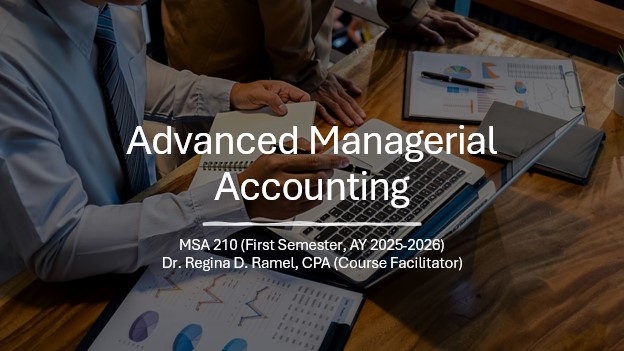Search results: 3380
- Enrolled students: No students enrolled in this course yet
- Teacher: JEFRIE ALINDAYU
- Enrolled students: 17
This course deals on the advanced requirements of effective and efficient information services including training and skills of information librarians or specialists. It is focused on the in-depth study and practice of reference services including the formulation of search strategy, use of primary and secondary sources, methods of keeping updated in a field, notetaking strategies, documentation, and presentation of results of library research
- Teacher: DAVID CABONERO
- Enrolled students: 13
- Teacher: FEBIE LANZUELA
- Enrolled students: 1
- Teacher: DAVID CABONERO
- Enrolled students: 3
LIS 202 - Advanced Library and Information Management
Course Description
This course deals with the advanced principles, practices and modern theories in managing libraries and information centers. It is aimed at providing library managers in all levels of education and in all schemes of education with professional competence, attitudes, values, and managerial skills to lead their library in progress.
It also focuses on the management of the library such as collection development, physical resources, information and communication technologies, human resources, financial resources, and library services; and preparing library development plan, strategic management action plan, and library project proposal.
Course Learning Outcomes
This course is intended to develop the key competencies of managing the key resource of any organization – its human resources for competitive advantage. At the end of the semester students must be able to:
1. differentiate the various management approaches applicable to library settings
2. enhance their knowledge, skills, attitudes and values in managing the library in accordance with the law and Code of Ethics for Filipino Librarians.
3. identify and translate new management theories, principles and practices in library setting particularly in their workplace.
4. perform the SWOT analysis in their own work place.
5. craft a project proposal integrating the functions of management such as planning, organizing, staffing, directing, controlling and budgeting.
- Teacher: ROSIELYN AUSTRIA
- Enrolled students: 13
This course deals with the advanced principles, practices and modern theories in managing libraries and information centers. It is aimed at providing library managers in all levels of education and in all schemes of education with professional competence, attitudes, values, and managerial skills to lead their library in progress.
It also focuses on the management of the library such as collection development, physical resources, information and communication technologies, human resources, financial resources, and library services; and preparing library development plan, strategic management action plan, and library project proposal.
Course Learning Outcomes
This course is intended to develop the key competencies of managing the key resource of any organization – its human resources for competitive advantage. At the end of the semester students must be able to:
1. differentiate the various management approaches applicable to library settings
2. enhance their knowledge, skills, attitudes and values in managing the library in accordance with the law and Code of Ethics for Filipino Librarians.
3. identify and translate new management theories, principles and practices in library setting particularly in their workplace.
4. perform the SWOT analysis in their own work place.
5. craft a project proposal integrating the functions of management such as planning, organizing, staffing, directing, controlling and budgeting.
- Teacher: ROSIELYN AUSTRIA
- Enrolled students: 6
- Teacher: FEBIE LANZUELA
- Enrolled students: 3
This course explores the study of community histories by examining models and theories used by historians and other social scientists. It also uses case studies that apply to a number of approaches in selected themes and areas. It enhances research skills through the proper use of primary and secondary sources and develops creativity through the utilization of sources other than documentary. It serves as an avenue for the integration of local history into the larger themes of social studies and enables students to use local resources to make new connections across the social studies curriculum.
- Teacher: FE YOLANDA DEL ROSARIO
- Enrolled students: 14
This course explores the study of community histories by examining models and theories used by historians and other social scientists. It also uses case studies that apply to a number of approaches in selected themes and areas. It enhances research skills through the proper use of primary and secondary sources and develops creativity through the utilization of sources other than documentary. It serves as an avenue for the integration of local history into the larger themes of social studies and enables students to use local resources to make new connections across the social studies curriculum.
- Teacher: FE YOLANDA DEL ROSARIO
- Enrolled students: 12
- Teacher: FE YOLANDA DEL ROSARIO
- Enrolled students: 13
- Teacher: GERTRUDE DANAO
- Enrolled students: 5
This course aims to provide students insights in management accounting on a more advanced level. It covers managerial accounting and cost management practices that can be strategically applied across various functions of a business organization to improve organizational performance. It covers the following management accounting concepts: cost-volume-profit analysis, budgeting, responsibility accounting, activity-based costing & management, balanced scorecard, strategic analysis of profitability, cost of quality and environmental accounting.
- Enrolled students: 5
- Teacher: MARIA CONCEPCION JALIJALI
- Enrolled students: 3
This course explores advanced managerial accounting concepts and their application in strategic decision-making, performance evaluation, and organizational control. It emphasizes analytical techniques, ethical considerations, and integration with financial and operational strategies in complex business environments.
- Teacher: REGINA RAMEL
- Enrolled students: 4
The course covers fundamental concepts and laboratory skills in Microbiology. The advancement on the topics features medically important bacteria, fungi and viruses. It includes discussions of the techniques utilized managing emerging infection diseases and the recent pandemic.
- Teacher: JASON ARNOLD MASLANG
- Enrolled students: 3
- Teacher: JASON ARNOLD MASLANG
- Enrolled students: 10
This course builds upon foundational knowledge and practical experience in nursing administration, providing an in-depth exploration of advanced theories and concepts essential for effective leadership and management within healthcare organizations. Throughout this course, students will critically analyze and evaluate contemporary theories, frameworks, and models related to nursing administration. They will examine the complex interplay between healthcare policy, organizational behavior, financial management, quality improvement, and strategic planning as they pertain to nursing leadership roles. Emphasis will be placed on understanding the theoretical foundations and their practical application in various healthcare settings.
- Teacher: JOMAN BALITON
- Enrolled students: 1


